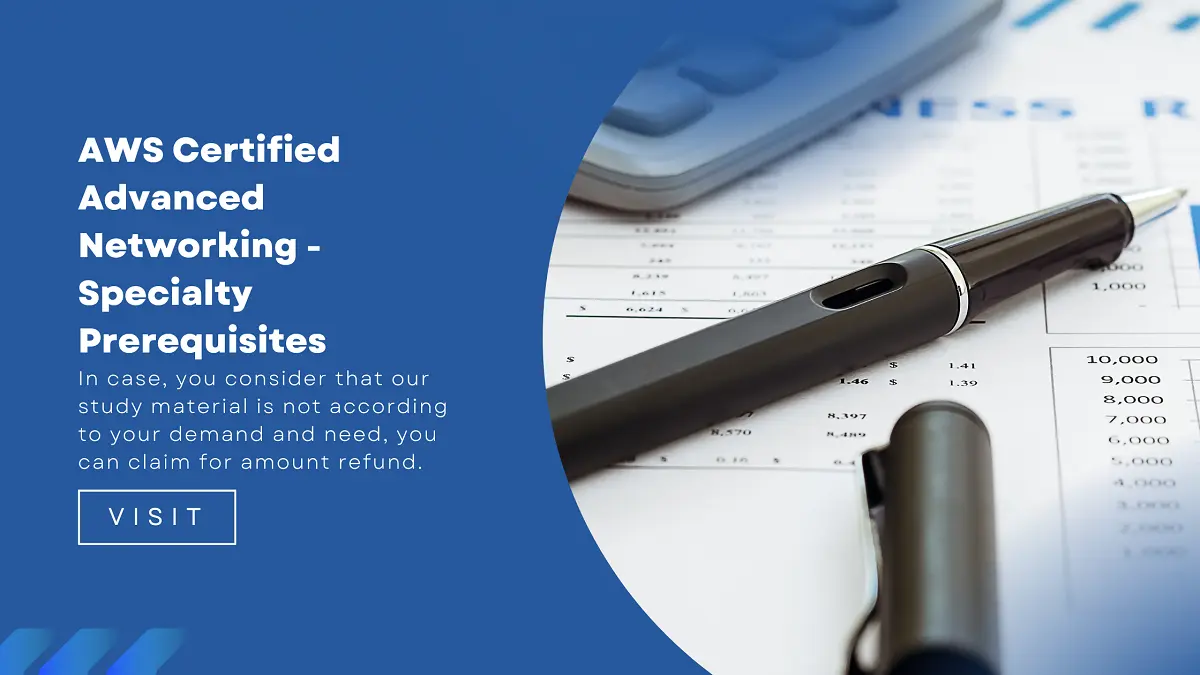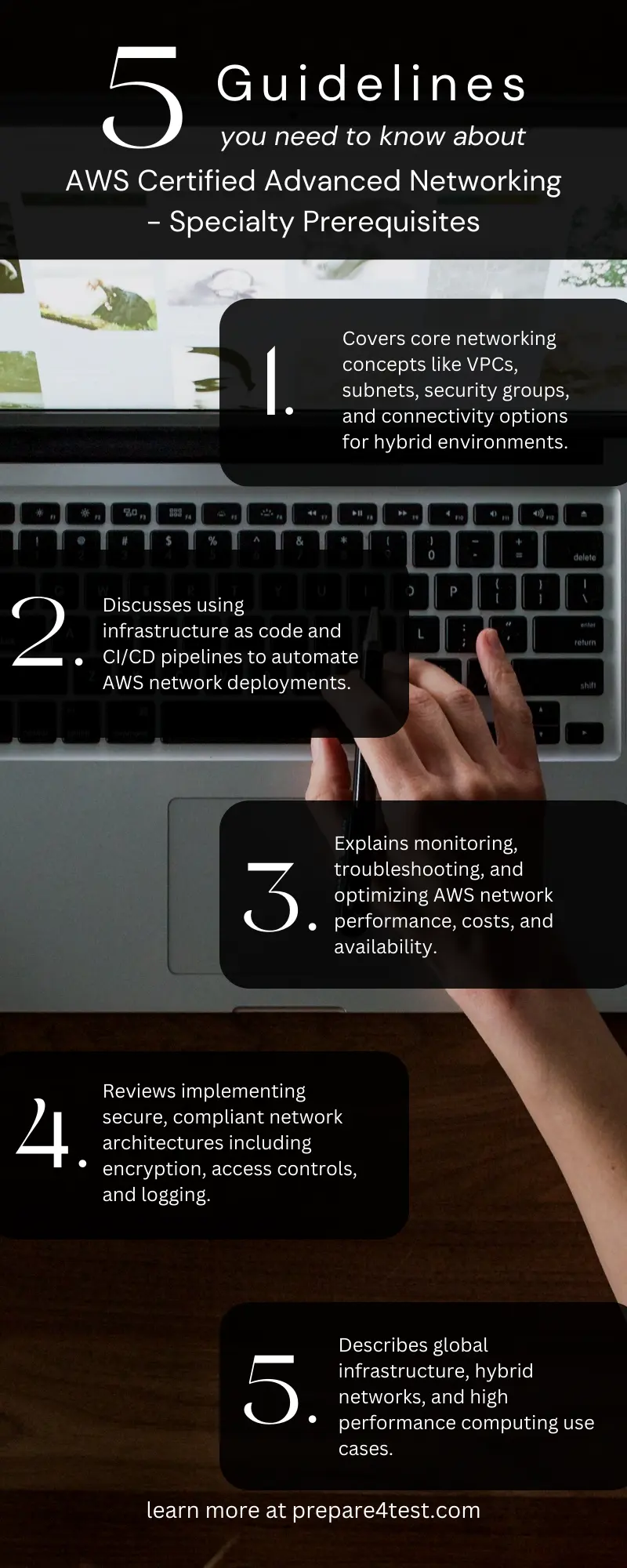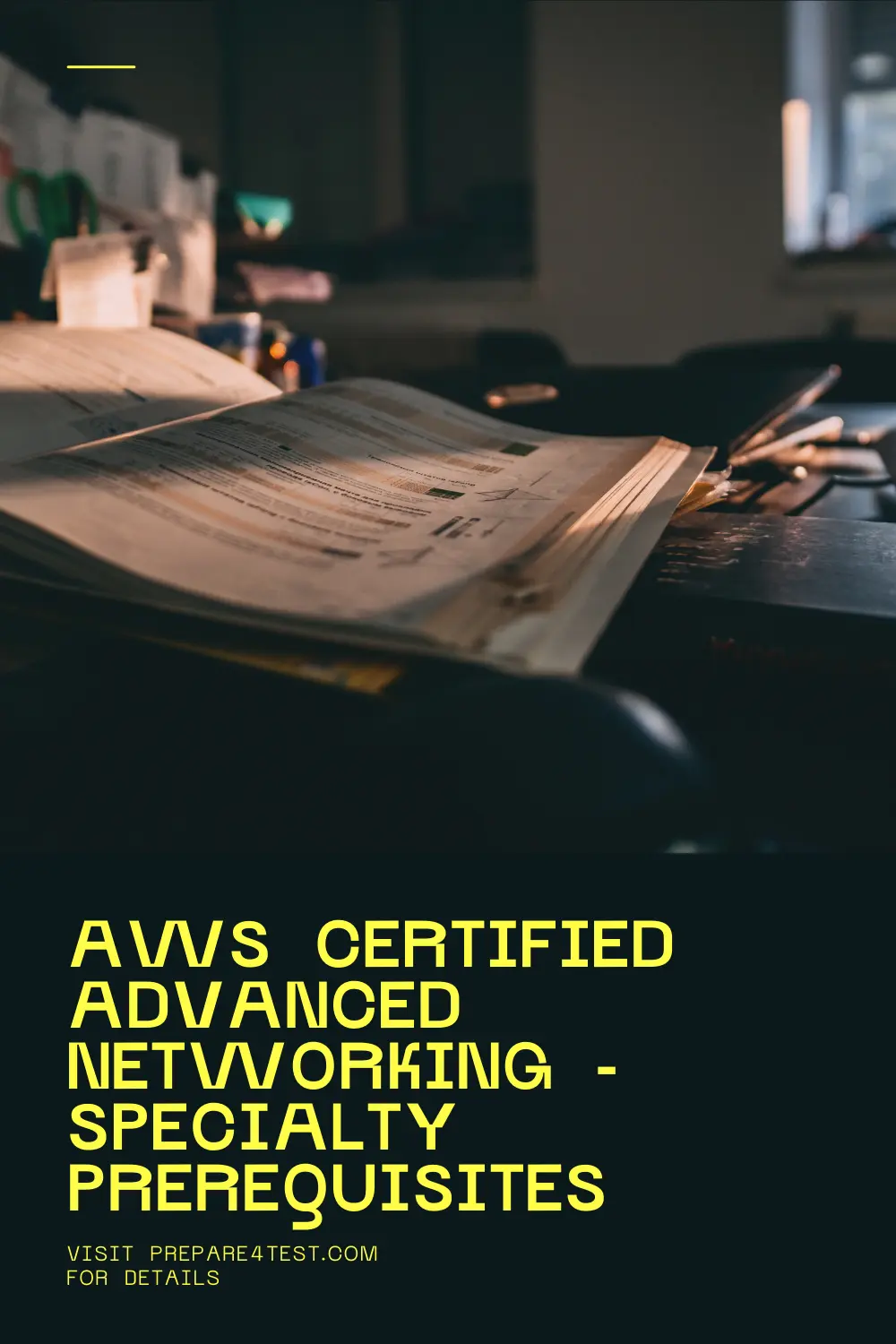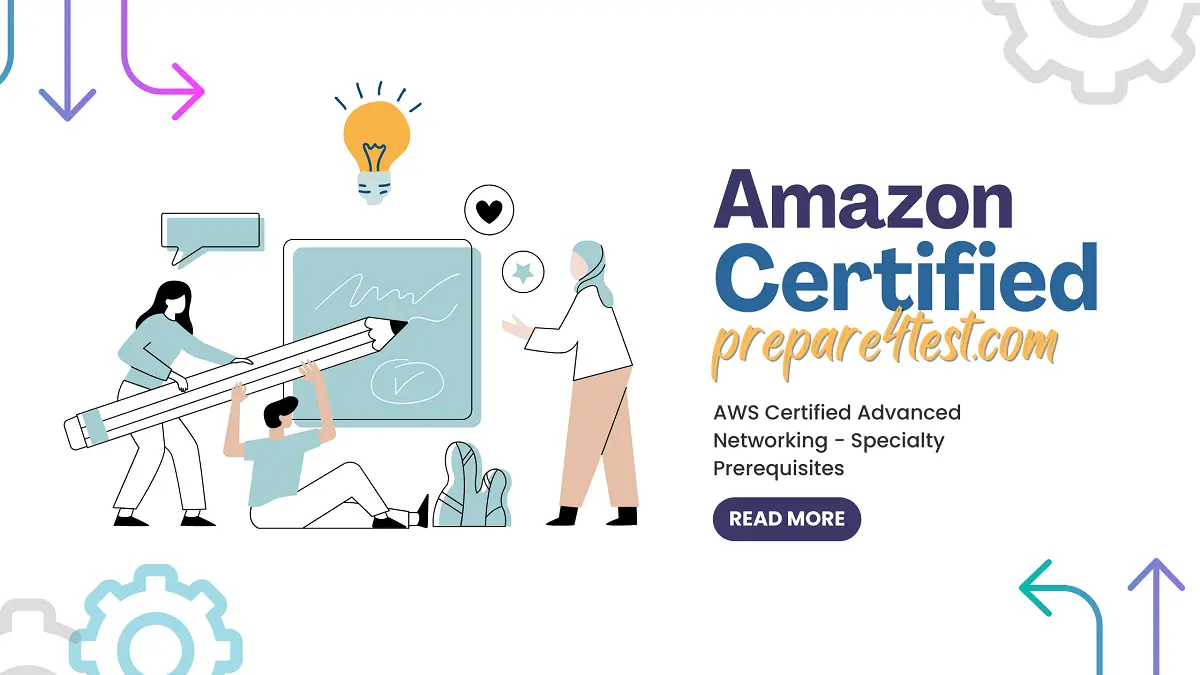
The AWS Certified Advanced Networking – Specialty certification is intended for IT professionals who possess advanced knowledge of designing, developing, operating, and troubleshooting AWS and hybrid IT network architectures at scale. Obtaining this certification demonstrates expertise in advanced networking architectures and connectivity options like IP VPN, MPLS, and VPLS.
To earn the AWS Certified Advanced Networking – Specialty certification, candidates should have at least 5 years of hands-on experience Designing and constructing network solutions and be familiar with a variety of AWS services and tools. Though there are no mandatory prerequisites, having the AWS Certified Cloud Practitioner or AWS Certified Solutions Architect – Associate certifications can help candidates prepare for the advanced topics covered in the exam.
This article provides a thorough and complete overview to the AWS Certified Advanced Networking – Specialty certification exam. We will cover the following topics:
- AWS Networking Concepts
- Hybrid IT Networking
- Automation
- Application Integration
- Security and Compliance
- Optimization and Troubleshooting
Understanding these core areas will help you determine if you have the necessary background to pass the certification exam and highlight any topics you may need to study further.
AWS Networking Concepts

The AWS Certified Advanced Networking exam covers a broad range of networking concepts and how they are implemented in AWS. Candidates should have a strong grasp of networking fundamentals before attempting the exam.
VPCs, Subnets, and Route Tables
You should understand how to create and configure VPCs, public and private subnets, custom route tables, network ACLs, and security groups. Know when and why to use each component to meet an application’s networking requirements.
Connectivity Options
Be familiar with the various connectivity options for hybrid environments and their use cases:
- VPN
- AWS Direct Connect
- AWS Transit Gateway
- VPC Peering
Know how to configure and troubleshoot each solution for private connectivity between on-premises data centers and AWS.
Network Performance
Understand how to optimize network performance for workloads like high performance computing using placement groups, jumbo frames, Elastic Network Adapters, and Elastic Fabric Adapters.
Global Applications
Know how services like Amazon Route 53 and AWS Global Accelerator can provide low latency and high availability for global applications across AWS regions.
IPv4 and IPv6 Addressing
Have a strong grasp of CIDR, IP addressing, subnetting, and other IPv4 and IPv6 concepts. Understand the considerations for migrating to IPv6 in AWS.
Hybrid IT Networking
Many enterprise organizations operate hybrid environments spanning their on-premises data centers and AWS. Candidates should understand best practices for integrating AWS with existing network infrastructure.
SD-WAN
Know how SD-WAN can be used to simplify connectivity and overcome challenges with traditional WAN architecture for hybrid environments.
Multiprotocol Label Switching (MPLS)
Understand the benefits of and options for connecting MPLS networks to AWS infrastructure through Direct Connect or VPN.
VLANs
Be able to configure VLANs for security and performance segmentation in AWS using Direct Connect, VPN, and VPCs.
Active Directory
Know how to extend Active Directory domains and trusts into AWS for identity integration using AD connectors and VPC peering.
Migrating Applications
Understand common networking migration strategies when moving on-premises applications to AWS.
Automation
The exam covers implementing automation for deploying and managing AWS and hybrid networks.
Infrastructure as Code
Know how to automate network architectures in AWS using Infrastructure as Code (IaC) tools like AWS CloudFormation, AWS CDK, and Terraform.
CI/CD Pipelines
Understand how to integrate networking tasks like configuring VPCs, subnets, and security groups into CI/CD pipelines.
Scripting
Be able to write scripts to automate networking configuration, validation testing, and monitoring using languages like Python, Bash, and PowerShell.
Application Integration

Candidates should understand how to integrate AWS networking services with applications and workloads.
Load Balancing
Know the different load balancing options in AWS and when to use application load balancers, network load balancers, Gateway load balancers, etc.
DNS
Understand how to configure Route 53 for application traffic management, geolocation routing, failover, and hybrid DNS solutions.
SAML
Know how to integrate identity providers like ADFS with SAML for SSO and securing access to applications in AWS.
VPC Endpoints
Be familiar with interface and gateway VPC endpoints for private connectivity between VPCs and AWS services.
Security and Compliance
A key part of the exam covers implementing secure and compliant network architectures.
DDoS Protection
Know how to architect networks to protect against DDoS attacks using AWS Shield, WAF, and other tools.
Encryption
Understand the various options for network encryption in AWS using VPNs, Direct Connect, and EBS/S3 encryption.
Security Groups
Be able to use security groups, NACLs, and other tools to control traffic between subnets and secure AWS networks.
Logging and Monitoring
Know how to enable flow logs, VPC traffic mirroring, and other logging to monitor networks for threats and compliance.
Optimization and Troubleshooting
Candidates should be able to optimize AWS network architectures for cost, performance, and availability.
High Availability
Understand how to design resilient, fault-tolerant networks across multiple AZs and AWS regions.
Performance Testing
Know how to load test and benchmark network configurations to identify bottlenecks and optimize performance.
Cost Optimization
Be able to optimize network costs using tools like AWS Cost Explorer and by leveraging Savings Plans, Reserved Instances, and Spot Instances.
Troubleshooting
Have experience using tools like VPC Reachability Analyzer and AWS Network Firewall Manager to troubleshoot connectivity and network issues.
Conclusion
The AWS Certified Advanced Networking – Specialty certification validates deep technical skills for designing, implementing, and managing AWS global networks. While there are no formal prerequisites, candidates should have significant hands-on experience and be comfortable with a wide range of networking concepts, automation tools, security practices, and troubleshooting techniques.
Individuals who obtain this certification demonstrate the expertise to architect advanced cloud network solutions at scale and meet the security, compliance, and performance needs of complex enterprise applications. The topics covered in this article provide a strong foundation to prepare for the Amazon Specialty certification exam.
In addition, expertise in network automation using Infrastructure as Code tools like CloudFormation and AWS CDK is tested. Monitoring, optimization, and troubleshooting skills using VPC Flow Logs, CloudWatch metrics, and tools like Route Analyzer are validated as well.
Overall, the AWS Certified Advanced Networking – Specialty certification confirms an individual’s capacity to architect, implement, and operate reliable, high-performance networks on AWS. It is ideal for IT professionals looking to demonstrate and validate their technical expertise in advanced cloud networking.
To earn the certification, one must have practical experience in a wide range of networking topics, as the exam covers a wide variety of such topics. However, it enables candidates to showcase their skills and advance their cloud careers. Individuals with this certification have proven they can meet the demanding network requirements of complex enterprise applications on AWS.



